When I came to Berlin, a city I heard to be inexpensive, with a strong anti-capitalist culture and social welfare, I was confused by the amount of beggars I saw in almost every corner of the town. There are many, of all ages and all ethnical backgrounds. Most people will turn their head when approached by the poor. When I addressed the topic with people who have lived here longer than I did, I would often get comments like “they’re just drug addicts, can’t stand up by themselves anymore” or ” if they really wanted it, this State would give them anything they need to start again”.All these statements never explained much of the truth at all.
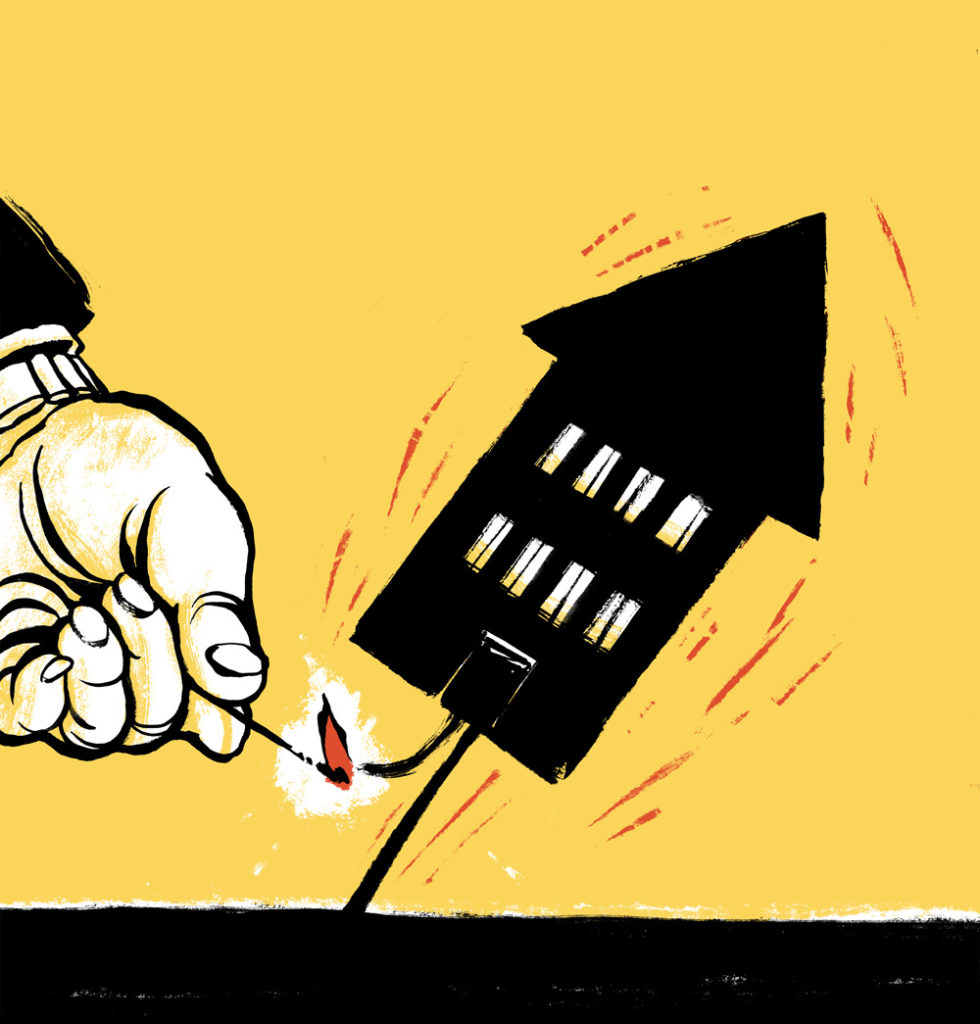
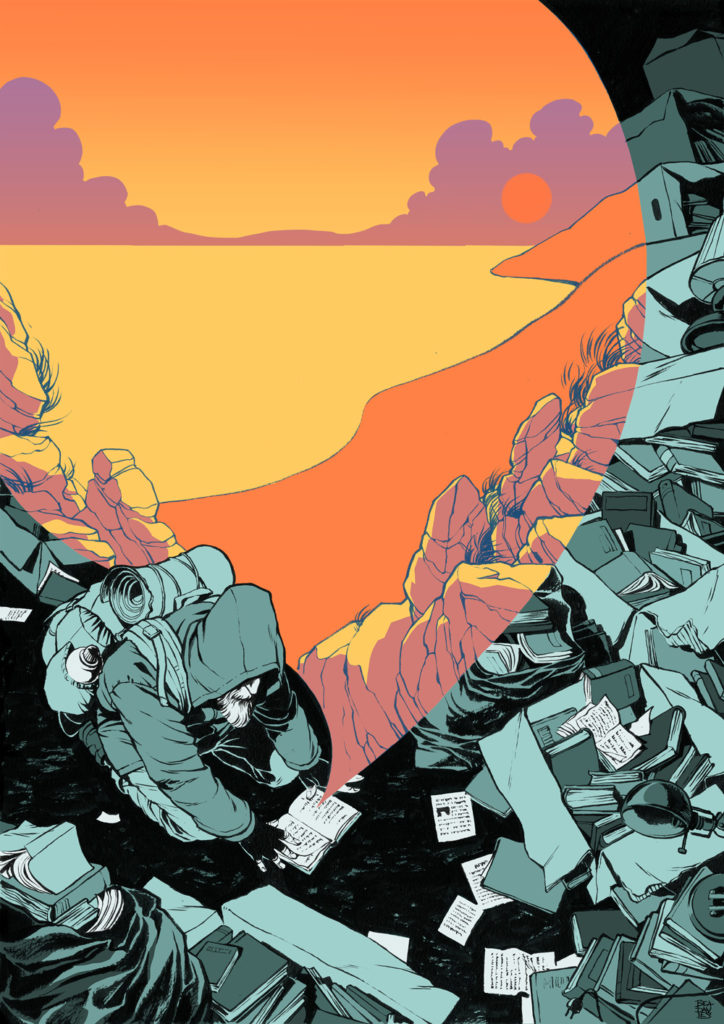
In March 2016 I presented to the Comic Invasion Berlin a project for investigating issues of homelessness and poverty in the capital by working together with the local homeless-magazines. In September 2016 I got in touch with the Strassen|feger, and the director of the association suggested me I made some shifts in the shelter they are managing, in order to meet the people in person and understand more about the issue.
Since then I have been volunteering once a month in the shelter. Shifts begin at 17:30. We greet the guests, check their luggage for weapons, alcohol and drugs, inform them about the rules of the house and give them some food and a bed, as well as offering social counseling and help in solving bureaucratic problems. At the shelter, I met people of all ages, nationalities, genders. There was the 19 year old who escaped from home and the 70 year old who was kicked out of his flat. The was the alcoholic, the blind, the wounded, the prostitute, the refugee, the wanderer.
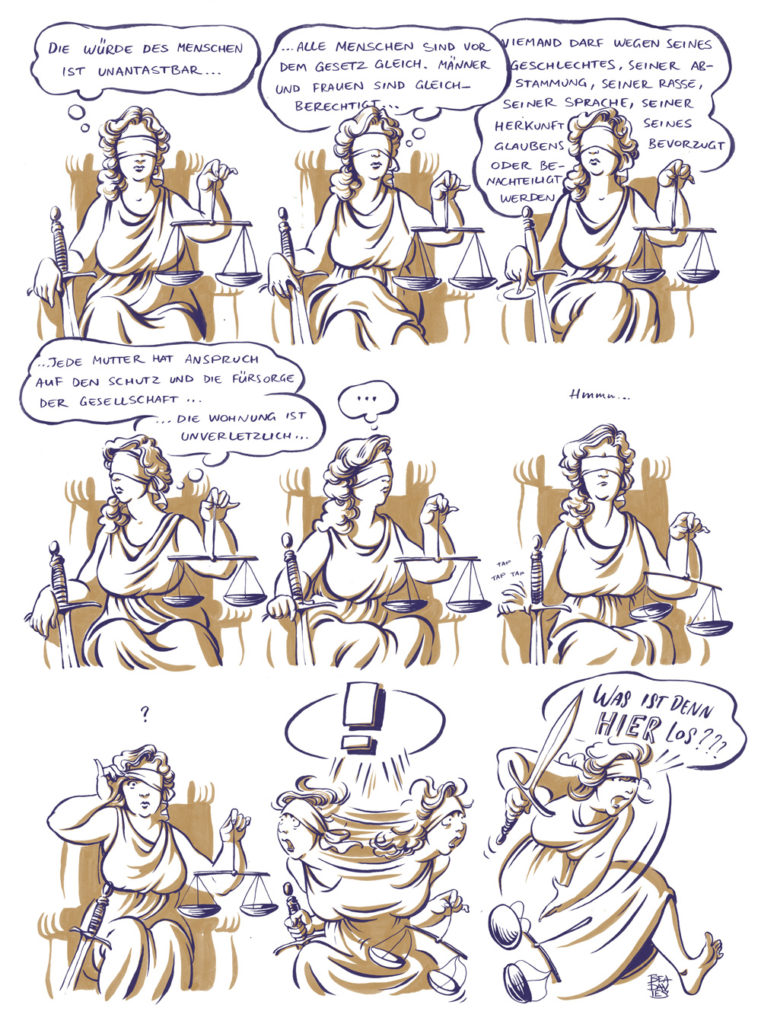

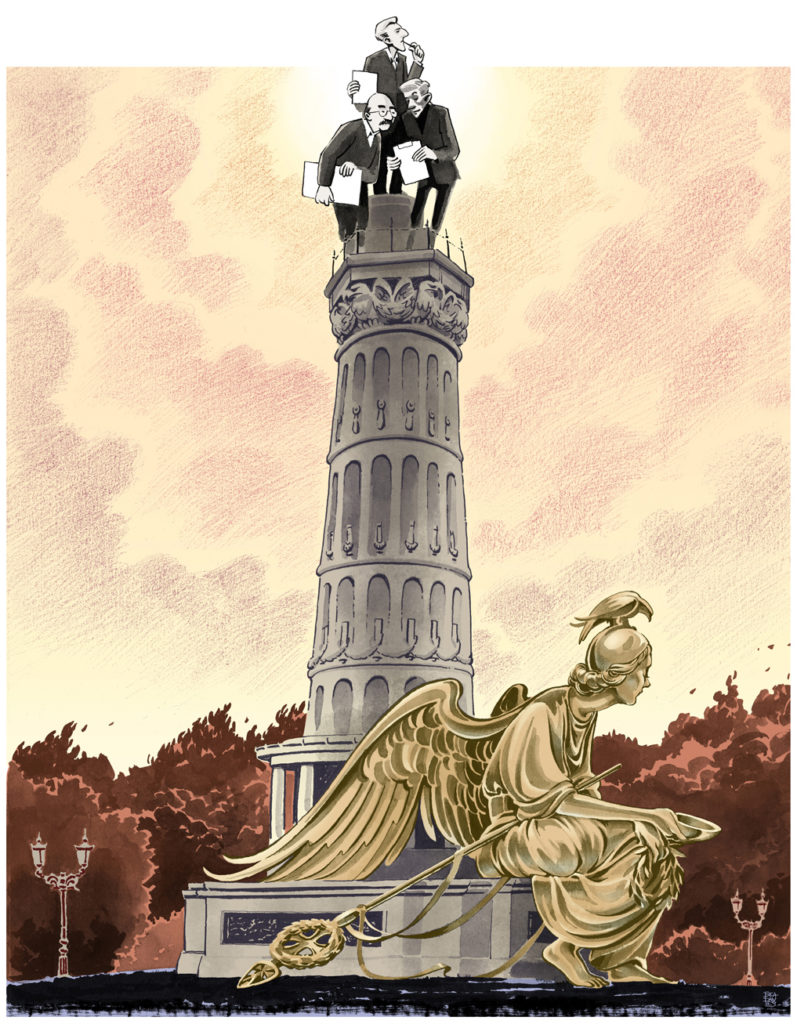
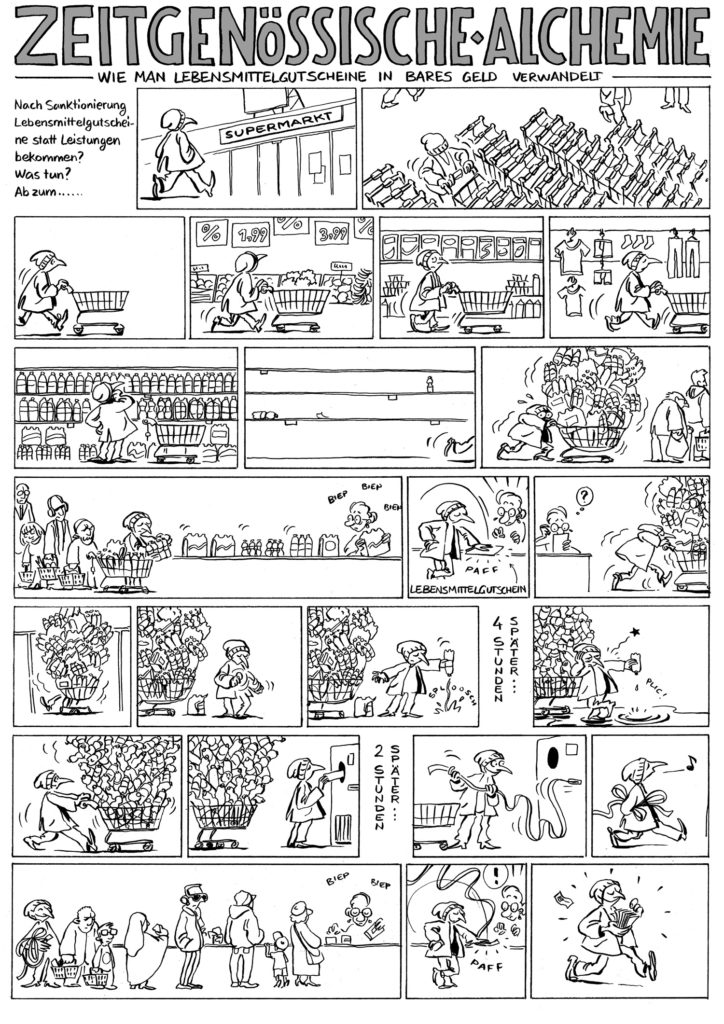
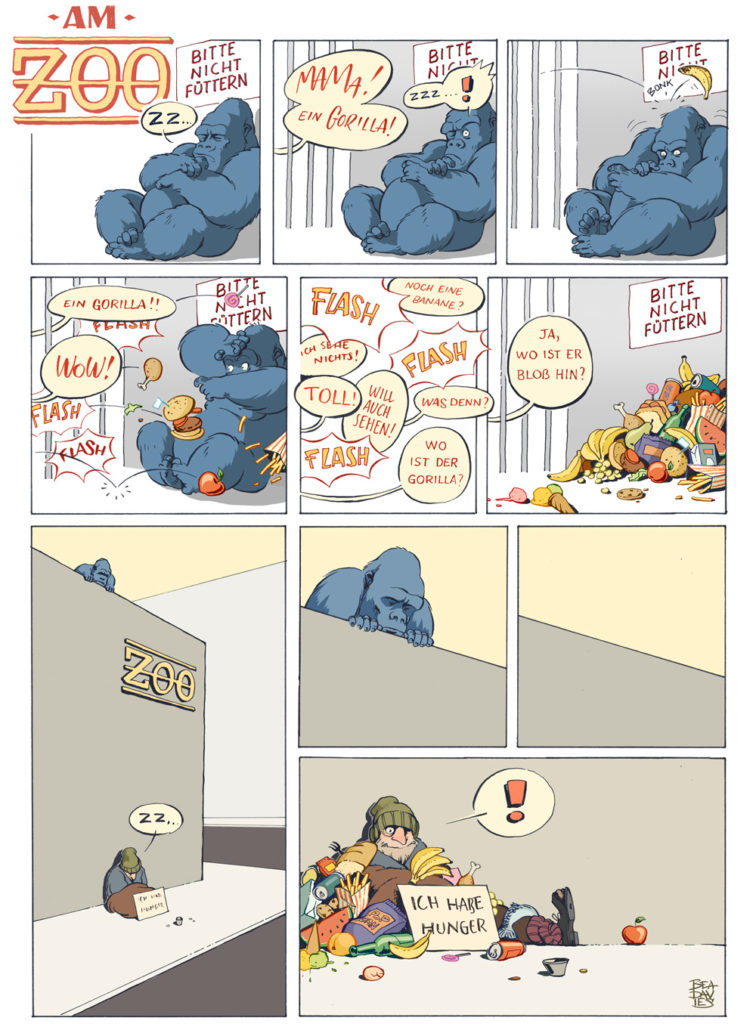
The borderline between a ‘common’ citizen and a homeless one is extremely subtle and not clearly defined. Every person is unique and so it’s their story. As we meet homeless and beggars, we’re often bound to see them as victims, or to consider their conditions pitiful, we consider them weak or hopeless. But I’ve learned about people who work everyday then go sleep at the shelter. I met some who are in extreme medical conditions, who are left to themselves but still have a joke to share. I saw others who escaped situations of abuse and are starting their lives from zero again. Many are working hard to put all the pieces together. What they do not need is pity and what they don’t deserve is prejudice.
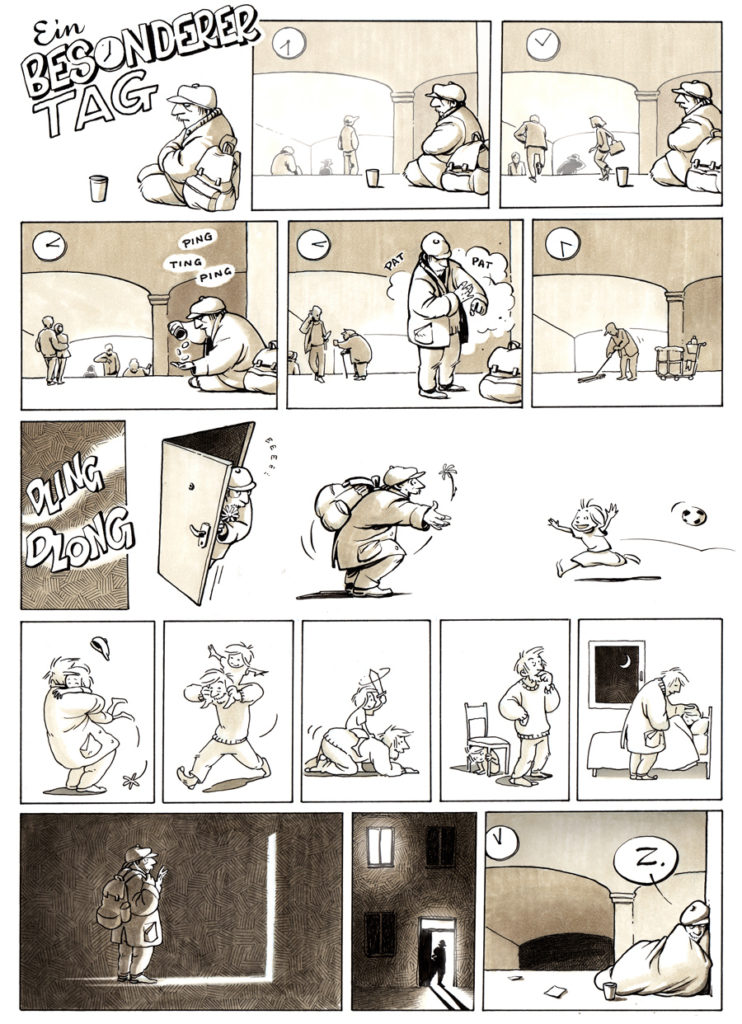
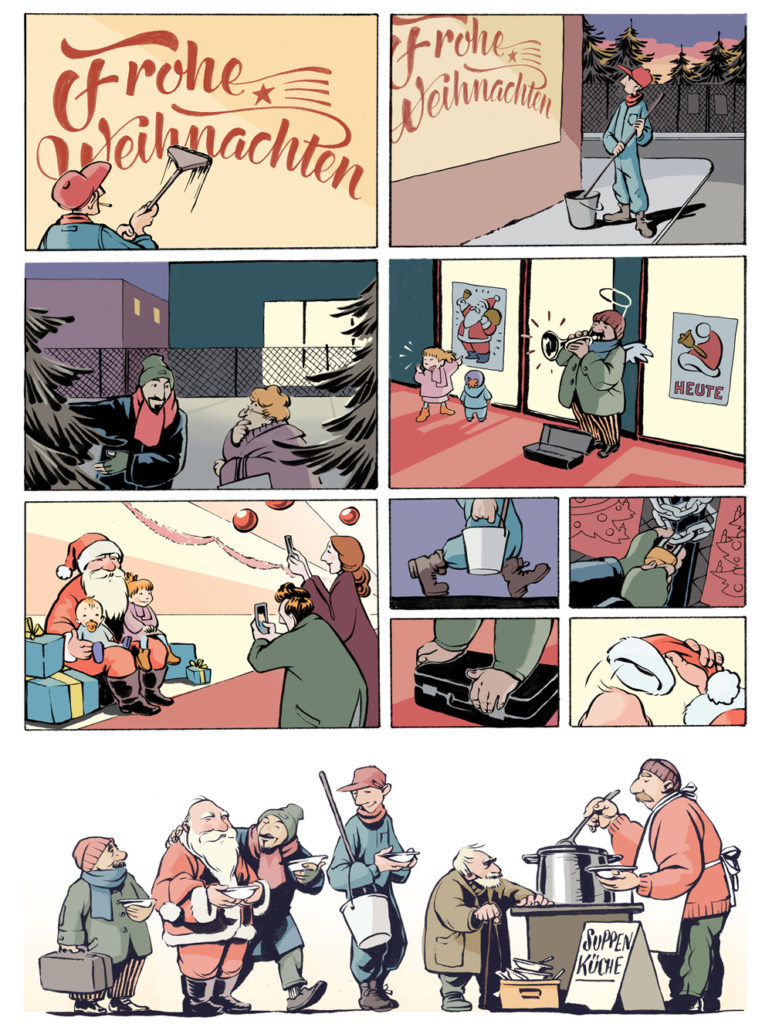
This experiences are nourishing the comics I make for the Strassen|feger, homeless-newspaper for Berlin and Brandenburg.
Empathy is what is what I am trying to achieve by drawing. Comics have the special power to deliver strong messages with simple images, This can make complex topics approachable to everyone and help shift the perspective.
Empathy will encourage an open dialog and helps much more then a few cents will do, by building a bridge between different, yet very close worlds.
–Bea Davies


